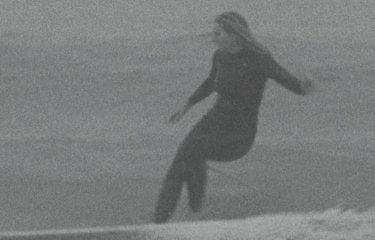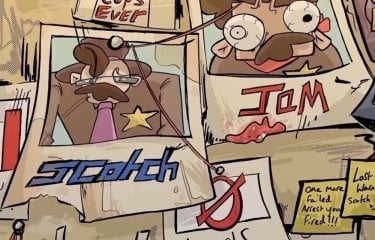Writer and publisher Dr Marshall Moore on the UK’s thriving creative writing education scene
15 September 2023

Dr Marshall Moore, course leader for Falmouth University’s online Creative Writing BA(Hons) degree, is a widely successful author with a decade of experience in the publishing industry, having founded a small press in 2009. We chatted to him about his work, and why he thinks the UK is one of the best places to launch a sustainable career in creative writing.
Marshall has written, taught and researched creative writing all over the world. Hailing from North Carolina, he settled in the UK in 2020 after living and working in Seoul, Hong Kong and Thailand. As an expert in global creative writing pedagogies, Marshall has recently taken on the role of course leader on Falmouth’s online BA in Creative Writing and is excited to support the next generation of writers to excel in the industry.
What’s your earliest memory of writing creatively?
I started telling stories when I was a small kid, even before I could really read and write. I taught myself; my father would bring home computer paper from his job, and I would use it to tell stories through drawing diagrams and little symbols.
As an extensively published author across many mediums, which of your published pieces of writing has made you the proudest and why?
“It would have to be a three-way tie. My first novel, The Concrete Sky, was kind of a big deal – it did well back when it was published in 2003 and got attention from a lot of well-known people. I'm equally proud of the piece that I wrote for my PhD; it explored both Chinese and Western ghost lore, and I love it as a piece of writing. And then more recently, since I've been here in the UK, I've written an essay about living through the 2019-20 protests in Hong Kong called 'Storms and Boxes' which got featured in The Southern Review, which is one of the most prominent journals in the world. It was my first time switching to short form non-fiction, and so the fact that I placed that with a magazine of that level means I must have done something right!”
The UK is taking this very pragmatic approach and so part of the conversation is always going to be about how you can get work published, and what roles you might take up in industry
Your research explores how creative writing is taught around the world. What is the most surprising thing you have uncovered in this area?
“It has been cool to discover that the basic pedagogy of creative writing instruction – the workshop – has been adapted by people from different countries and cultures. A lot of the same underlying techniques are there, but people have tweaked them for their own countries and contexts. And there's only just beginning to be a dialogue around what kind of stuff people have done and are doing and what's working, so that's something I'm really pleased to be a part of.”
How does that look in the UK?
“I think one advantage that the UK has is that there's a very practical industry-facing focus to creative writing education. Questions are asked very early on in students’ journeys about their ambitions and goals, and so, outcomes are always part of the equation. In the US it's a bit different because there's more of a focus on craft for its own sake.
“The UK is taking this very pragmatic approach and so part of the conversation is always going to be about how you can get work published, and what roles you might take up in industry. It isn’t at the expense of perfecting your craft, but you are certainly more likely to leave a degree with a good idea of how to turn creative writing into a viable career. That’s something that Falmouth does particularly well – channelling the academic elements of creative writing through a very industry-focused lens.”
What is the best piece of writing advice that you've ever received?
"You need to make time to write. I may not always be in the mood to write something new, but if I'm not actively writing, I can at least go back over something that I've already written to develop it. So, continuing to make the time for it is important. I don't think you necessarily need to have a daily routine or daily word count but keeping it at the forefront of your mind allows you to get the work done.”




